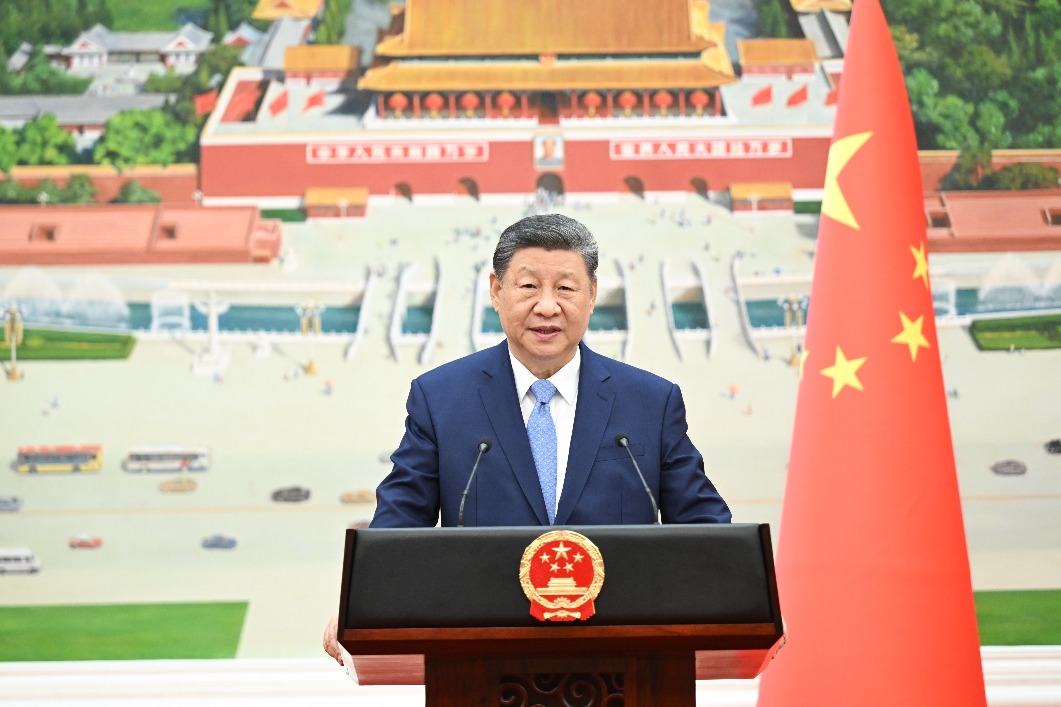Tactics hurt ordinary Syrians the most, expert says

Watching a combine harvester grind through his golden wheat, Yahya Mahmoud, a Syrian farmer, is relieved the yield looks good this year, even as a tanking economy leaves millions hungry across the war-torn country.
Before the war erupted in 2011, Syria could produce enough wheat to feed its entire population but harvests then plunged to record lows, boosting reliance on imports.
What's worse, under the fresh sanctions imposed by the United States in mid-June, the space was further curtailed for any other countries and entities trying to engage and cooperate with Syria.
Coming on top of the war destruction and the spread of the coronavirus, the US sanctions would undoubtedly increase the suffering of the Syrian people, said Zou Zhiqiang, a researcher at Shanghai International Studies University's Middle East Studies Institute.
The new round of US sanctions expanded their scope to include more areas, such as energy, finance and engineering construction, and also more enterprises and individuals that cooperate with Syria, said Zou, noting the effects would be particularly felt in Iran and Russia, the main allies of the Syrian government.
The measures are the first to take effect under the so-called Caesar Act, which punishes any companies that work with Damascus and seeks to prevent this normalization without accountability for human rights abuses. It also blocks US reconstruction assistance. The first designations target 39 people or entities, including Syrian President Bashar al-Assad and his wife Asma.
Political goals
However, Zou said their purpose was to help Washington achieve its political goals in Syria by bringing down the government.
"The sanctions aim to continue to pressure the Syrian government so that the government can make some political concessions during the peace talks with other related parties," the Chinese expert said.
Although the US sanctions have indeed put the Syrian government under greater pressure, Zou said it will be the Syrian civilians that ultimately bear the brunt of the suffering.
"Under the multiple threats of war destruction, epidemic spread and external sanctions, Syria also faces huge challenges created by inflation and intensified exchange rate depreciation, as well as material shortages-including for food and medicine," he said.
Syrian Foreign Minister Walid al-Moallem accused the US of "seeking to starve the people" of Syria by imposing new sanctions and opening the door for terrorism to return to the war-torn country.
Haytham Haydar, the director of agricultural planning in the Syrian government, echoes this view, saying the "economic blockade" on Syria would only boost agricultural production.
Agencies contributed to this story.
Today's Top News
- China sees over 33.7 billion inter-regional trips in H1
- BRICS justifiably calls for IMF reforms
- Xi receives credentials of new ambassadors to China
- Sino-US trade talks key to global supply chain
- Medical insurance covers 95% citizens
- Great opportunities mark 50th anniversary






























